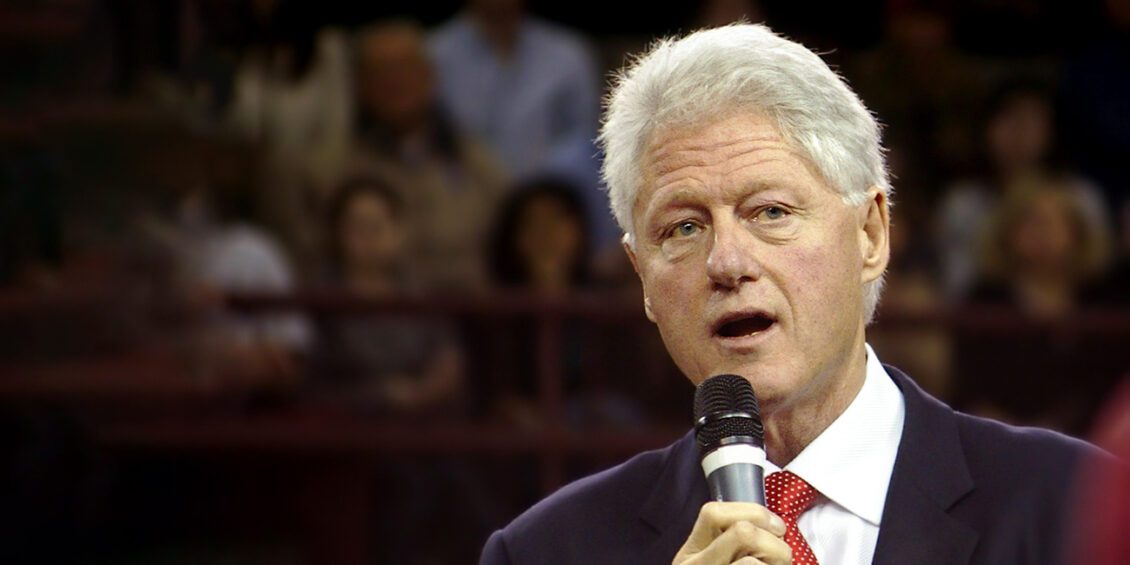
I want you to take a trip in the Tardis with me. Hop in whilst I press the button for 2006 and let’s get going.
We open the doors to find it’s September, we’re in Manchester and it’s raining. We join hundreds of people with hoods up or huddled under umbrellas, heading over to the G-Mex Convention Centre for the afternoon of Labour Party Conference.
A Labour Government was re-elected just the previous year, for the second time since the historic victory in 1997.
But there’s an air of disquiet and the people seem divided. It’s Tony Blair’s last conference. Rumour has it that the Labour leadership are likely to suffer a defeat on the NHS and Council housing later in the day.
As we take our seats in the conference centre, the mood is shifting, people are getting excited about the afternoon’s guest speaker. Someone said they spotted Bill Clinton arriving at the Midland Hotel at lunchtime.
And then he walks onto the stage to an audible gasp from the audience and he has a few things to say…
“You don’t have an option to stand still … I think your biggest problem right now is that people take your achievements and your ideas for the future for granted.”
When a new crowd took over, he said, you think…
“they’ll keep everything right, it’ll be all right …”
Clinton argued that Labour had to show its achievements were “not an accident” a Guardian newspaper poll, was suggesting that 70% of people believed it was time for change.
Speaking from his own experience, Clinton said that things could change rapidly when power changed hands and all the good work could quickly be undone.
Since 1997 Labour had introduced the National Minimum Wage, delivered thousands of Sure Start Children’s Centres and introduced the Employment Relations Act, all of which helped working people and parents who wanted to get back to work.
The National Minimum Wage raised pay for the lowest paid without damaging employment, despite the dire predictions that jobs would be lost. Again, for many this didn’t go far enough and the Real Living Wage Campaign was born. The Tories cynically tried to hijack this, causing confusion over pay rates by introducing their own National Living Wage at a lower rate. This sleight of hand is something we have come to expect because we can’t trust the Tories.
3,630 children’s centres were opened between 2003 and the 2010 election, but from when Labour lost power in May 2010, up to 2019, the number had dropped to 3,050. That’s 580 communities that lost their children’s centre. Many parents, especially lone parents lost a route back into employment.
The Employment Relations Act improved rights for workers including a new statutory procedure for employers to recognise and collectively bargain with a trade union, a requirement that union members are not subject to any detriment short of dismissal for attempts to organise and prohibiting any blacklisting of union members. It also enhanced the rights employees have to workplace training and increased paid maternity leave.
This Act, from Labour, made inroads into reversing Tory anti-trade union legislation and I acknowledge that many feel it could have gone further. But fast forward to the next Tory government and more anti-trade union legislation has poured in, not only undoing Labour’s work, but making it harder and harder for workers to exercise their basic democratic right to take industrial action. Under First Past the Post, the Tories got a majority in Parliament, without getting more than 50% of the vote and in short, trade union rights are going backwards.
Law on trade unions in Britain is frequently described as the most restrictive in the western world. Trade union rights have been the target of sweeping reforms by right-wing governments here when they secure power – what happens when we have such a centralised, elitist political system
Rightly, under a Labour Government we wanted more. That is our job as progressives, as trade unionists, to keep pushing until we achieve greater equality, until the balance of power and the wealth is shared more equally among us.
After another 13 years under the Tories, we must now recognise that even if Labour does get into power under First Past the Post, without proportional representation, all that good work can be undone.
The challenge now, for all those of progressive politics, is how to turn things around, not just for a few years, but permanently.
To build a country that works for working people, needs a fairer voting system. It’s Time For PR.